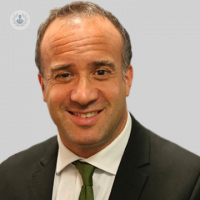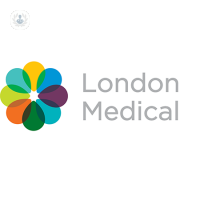Thyroid
Mr Vikram Dhar - Otolaryngology / ENT
Created on: 05-29-2013
Updated on: 03-17-2023
Edited by: Aoife Maguire
The thyroid gland is an endocrine gland located in the front of the neck, below the Adam’s apple. The thyroid is shaped a little like a butterfly, and is responsible for producing hormones throughout your body. The hormones produced by the thyroid help to control such things as the burning of calories in your body, the speed of your body’s metabolism, and regulates the body’s development from birth to old age.

Diseases that can affect the thyroid
There are a number of diseases and disorders that can affect the thyroid, which usually cause either the production of too much or not enough hormones that the body needs, which can lead to other problems elsewhere.
Problems that can affect the thyroid include:
Hyperthyroidism
Otherwise known as overactive thyroid, this condition is when the thyroid gland produces too much of the thyroid hormone. An excess of the hormone can lead to many problems, such as changes in mood, anxiety, tiredness and heart palpitations amongst others.
Hypothyroidism
The opposite of hyperthyroidism, hypothyroidism is when not enough of the thyroid hormone is produced, leading to symptoms of constipation, feeling cold and tired, and difficulty concentrating. If a person is suffering with hypothyroidism at a young age, it can cause problems with growth, delayed puberty, and irregular periods.
Goitre
This is the term used for an enlarged thyroid, and is associated with a malfunctioning thyroid. It can cause symptoms of coughing, difficulty swallowing and even difficulty breathing in some cases.
Thyroid cancer
Thyroid lumps are more concerning in the extremes of age. Thyroid cancer is more common place in smokers and those with a family history of thyroid cancer, though it can affect anyone.
Thyroiditis
This is the general term for an inflamed thyroid. It can refer to a number of conditions such as Hashimoto’s thyroiditis, Postpartum thyroiditis, and Subacute thyroiditis. All of these conditions affect different age groups, and have different kinds of symptoms, though the common symptom is swelling of the thyroid gland.
How are thyroid problems treated?
Treatment for a thyroid disorder varies depending on the type of condition. Some may be treated with medication, where others may require surgery.
Medication can be prescribed to correct the hormone levels produced by the thyroid gland, such as to help produce more hormone in the case of hypothyroidism, or to restrict the amount of hormone produced with hyperthyroidism.
When surgery is required, it will usually involve removal of part of the gland, or to remove part of the swelling or goitre. The surgical treatment for patients with thyroid cancer is good, with many patients making a full recovery when the cancer is found early.
















